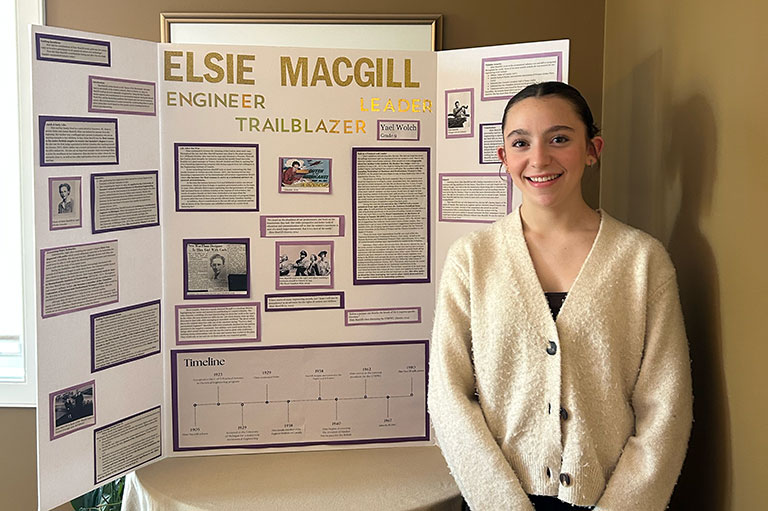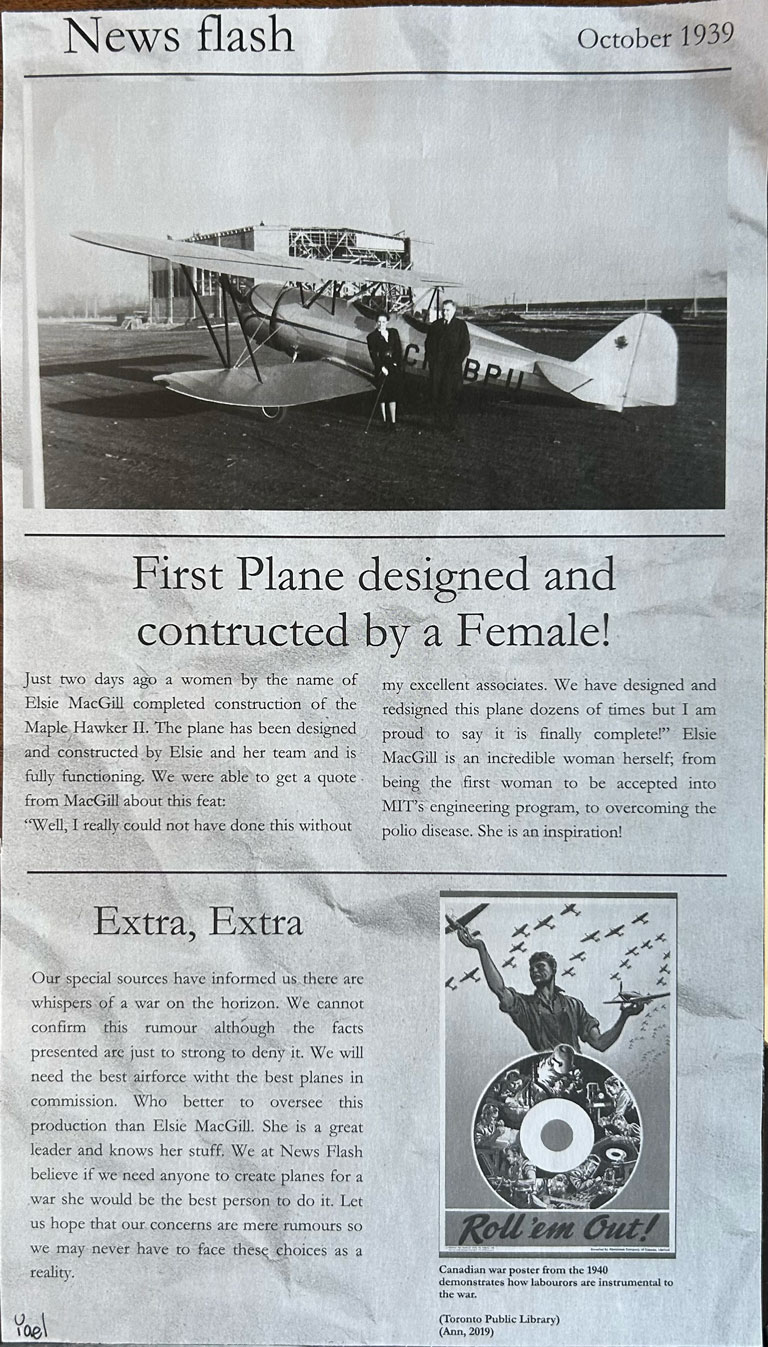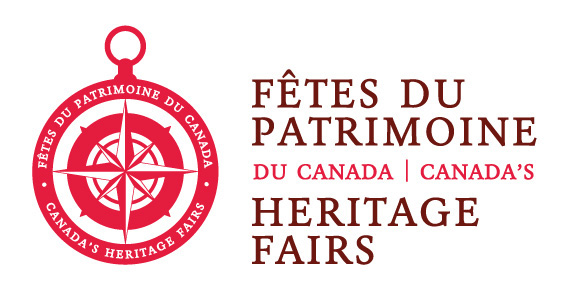Yael W.

Elsie MacGill: Engineer, Leader, Trailblazer
Yael W.
Edmonton Regional Heritage Fair
Edmonton, AB
Elsie MacGill, better known as the ‘Queen of the Hurricanes’, led many firsts in and outside of the aviation industry. She is nationally recognised for being the first Canadian female engineer. Her contributions as an aeronautical engineer during the Second World War along with her numerous leadership positions following, helped pave the way for women in STEM today. Elsie was the first woman to be accepted to the University of Toronto's School of Practical Science in Electrical Engineering, as well as aeronautical engineering at the University of Michigan. Though she contracted Polio and was bedridden for about a year, her illness did not stop her from completing her doctorate in aeronautical engineering from MIT.
After moving back to Quebec, Elsie worked at a plane manufacturing company called CanCar, where she was quickly promoted to Chief Aeronautical Engineer. This was another first for women in the industry and a pivotal leadership position. It was in this position that Elsie created the first ever plane fully made by a woman: the Maple Leaf II Training Plane. During World War II, Elsie oversaw the manufacturing of about 1400 Hawker Hurricane fighter planes for the British Airforce. Without Elsie’s expertise and effective leadership, the outcome of the British air force could have been completely different.
Elsie was involved in many different committees and organizations that advocated for women's rights in the workplace. Several of the committees she served on and led recommended bills or amendments to bills. They also worked with big corporations and news outlets to spread awareness for their campaigns. Along with this she is an incredible inspiration to those in the aeronautical industry. She represents perseverance and strength and changed the way women are viewed in the workplace: serious, competent and capable.
What sources and evidence did you consult for your project? What different perspectives did they provide on your topic?
Throughout my research for my project, I hoped to include primary and secondary sources in my work. An example of a primary source I used was the real news article published in the 1940's in which Elsie MacGill was interviewed. This news article gave me an insight into how Elsie was treated and regarded as a woman holding the position of Chief Aeronautical Engineer. This was truly eye-opening! Although these first hand sources came across as sexist by today’s standards, it is important to get a record of what the perspectives and beliefs were at the time. As for secondary sources, I relied heavily on the book, Queen of the Hurricanes, by Crystal Sisson. This book is a memoir of Elsie MacGill’s life and through this book I was able to delve more deeply into other sources that were provided along the way. Throughout my research, I was mindful to include many different websites, articles, and published works to ensure that the information I provided was factual and included multiple perspectives.
What is the historical significance of your topic?
Elise MacGill was a woman of many firsts. She was a trailblazer in the field of engineering; she was the sole woman in many of her classes at university, and often the first women to be accepted to the engineering programs. MacGill was also the first woman to fully design a plane (the Maple Leaf II Trainer), as well as one of the first women to be appointed Chief Aeronautical Engineer. Not only did Elsie set the standard in aeronautical engineering but she was also known as a woman that contributed greatly to the efforts of the allies in World War II. Throughout the war Elsie managed about 4000 workers and oversaw the production of 3-4 Hawker Hurricane jets per week. Later in her career, she advocated for bills to be put in place that supported equality in the workplace, and served as a voice and role model for women in science.
Why did you choose this topic?
As a teenager whose social studies classes are full of interesting ideas and discussions, I have found myself increasingly aware of the fact that there are so many people who have contributed significantly to Canadian society but whose names are never mentioned or learned about. Additionally, I look up to Elsie as someone who faced uphill battles and proved time and again that her abilities are on par with her male counterparts. Without Elsie MacGill Canada would be extremely different, and yet most people do not even know her name. I truly believe it is so important for our future that we learn about our past and the people that shaped Canada.
 A newspaper created by Yael reporting on the first airplane designed by Elsie MacGill.
A newspaper created by Yael reporting on the first airplane designed by Elsie MacGill.

